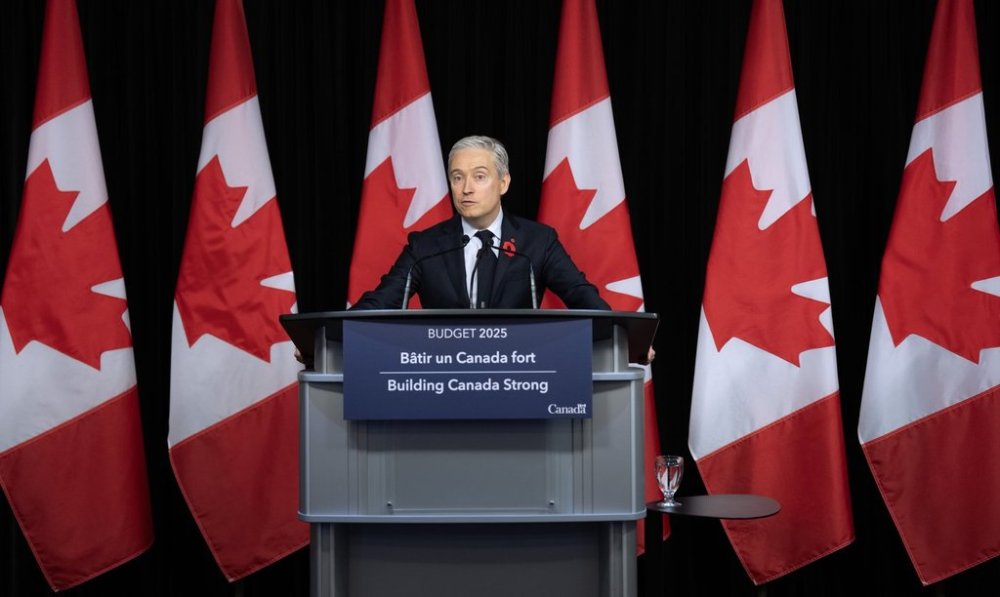Entertainment
Federal Budget Restricts Health Funding Negotiations for Provinces

OTTAWA – The recent federal budget indicates a tightening of health-care funding, leaving provincial premiers without significant negotiation power for increased financial support in the coming years. Economists and health advocates express concern that this trend will have lasting implications for health services across Canada.
The projected funding for the Canada Health Transfer is set at $54.7 billion in the fiscal year 2025-26. This amount is expected to grow by five percent annually until 2028. Following that period, the budget outlines a minimum annual increase of three percent, tied to a rolling three-year average of nominal GDP growth.
According to Mostafa Askari, chief economist at the University of Ottawa’s Institute of Fiscal Studies and Democracy, the budget signals a clear message: there is little flexibility for negotiations regarding health transfers or social funding. “The government’s primary fiscal goal is to balance the operating budget within three years, which includes health transfers,” Askari explained.
The Canadian Union of Public Employees asserts that this budget will result in a decreasing share of federal funding for provincial and territorial health budgets over the next five years. Their analysis indicates that inflation and an aging population will significantly increase the real costs of maintaining service levels, outpacing nominal GDP growth.
In a unified effort, provincial premiers have long advocated for an increase in the federal share of health costs. In 2021, they called for the federal government to raise its contribution from 22 percent to 35 percent and maintain the five percent annual increases. At their last meeting in July 2025, the premiers reaffirmed their commitment to enhancing the Canada Health Transfer.
Ontario’s Health Minister Sylvia Jones is among those pressing for change. A spokesperson emphasized the need for the federal government, led by Prime Minister Mark Carney, to fulfill its obligations by contributing its fair share. “A minimum growth rate of five percent is crucial for provinces and territories to plan effectively for their health systems,” stated spokesperson Ema Popovich.
The upcoming expiration of billions of dollars in health funding agreements poses an additional challenge. These include $2.5 billion annually for bilateral agreements and $1.2 billion directed towards home care, mental health, and addictions, both of which are set to expire in 2027. Furthermore, a $600 million transfer for long-term care is scheduled to end in 2028.
The Canadian Health Coalition has expressed concern that there is no indication these funding agreements will be renewed. National Director of Policy and Advocacy Steven Staples remarked, “The federal government is likely to do the bare minimum regarding health care.”
In response, Health Minister Marjorie Michel defended the budget as an investment that safeguards health transfers and includes a $5 billion health infrastructure fund aimed at improving hospitals and urgent care facilities. Askari noted that this infrastructure funding could provide a pathway for provinces to negotiate new health funding.
Economist Don Drummond, who has held senior roles in the Finance Department, anticipates that health transfers will stabilize around three percent annually. He highlighted a growing federal reluctance to provide substantial funds without political recognition. “They want more direct involvement in health care,” Drummond remarked, referencing the allocation of infrastructure funds and the introduction of a dental care plan.
Reflecting on past budgetary actions, Drummond cautioned that premiers should remain vigilant. He recalled the 1995 budget, which included cuts to federal transfers, suggesting that the current budget might not be the end of fiscal constraints.
This report was first published on November 11, 2025, by The Canadian Press.
-

 World4 months ago
World4 months agoScientists Unearth Ancient Antarctic Ice to Unlock Climate Secrets
-

 Politics5 days ago
Politics5 days agoSecwepemc First Nation Seeks Aboriginal Title Over Kamloops Area
-

 Entertainment4 months ago
Entertainment4 months agoTrump and McCormick to Announce $70 Billion Energy Investments
-

 Lifestyle4 months ago
Lifestyle4 months agoTransLink Launches Food Truck Program to Boost Revenue in Vancouver
-

 Science4 months ago
Science4 months agoFour Astronauts Return to Earth After International Space Station Mission
-

 Technology2 months ago
Technology2 months agoApple Notes Enhances Functionality with Markdown Support in macOS 26
-

 Top Stories1 month ago
Top Stories1 month agoUrgent Update: Fatal Crash on Highway 99 Claims Life of Pitt Meadows Man
-

 Sports4 months ago
Sports4 months agoSearch Underway for Missing Hunter Amid Hokkaido Bear Emergency
-

 Politics3 months ago
Politics3 months agoUkrainian Tennis Star Elina Svitolina Faces Death Threats Online
-

 Politics4 months ago
Politics4 months agoCarney Engages First Nations Leaders at Development Law Summit
-

 Technology4 months ago
Technology4 months agoFrosthaven Launches Early Access on July 31, 2025
-

 Top Stories3 weeks ago
Top Stories3 weeks agoFamily Remembers Beverley Rowbotham 25 Years After Murder





















